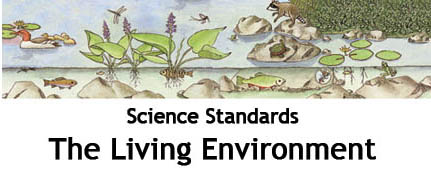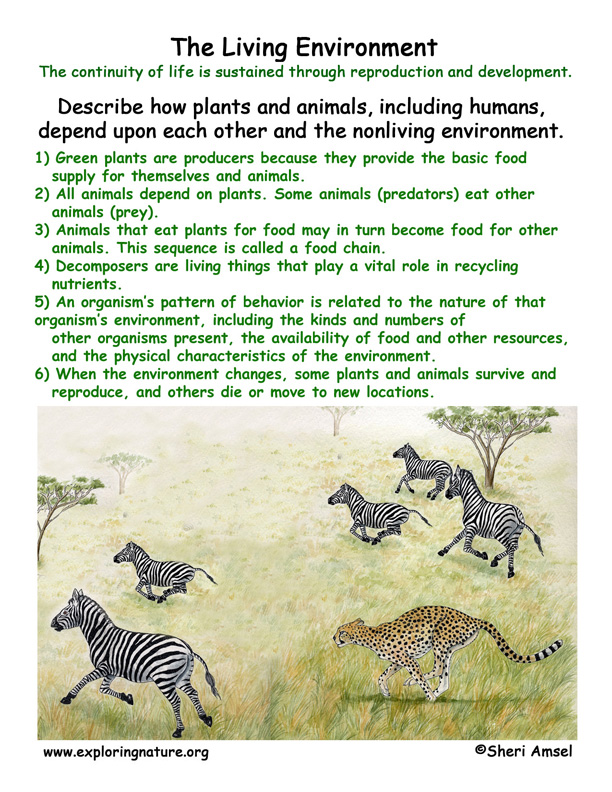

Students will understand and apply scientific concepts, principles, and theories pertaining to the physical setting and living environment and recognize the historical development of ideas in science.
Plants and animals depend on each other and their physical environment.
“Plants and animals interact in a number of ways that affect their survival. The survival of plants and animals varies, in response to their particular environment. As the physical environment changes over time, plants and animals change. Younger students should focus on simple, observable associations of organisms with their environments. Their studies of interactions among organisms within an environment should start with relationships they can directly observe.” From the Elementary Science Core Curriculum Guidelines
Describe how plants and animals, including humans, depend upon each other and the nonliving
environment.
6.1a Green plants are producers because they provide the basic food supply for themselves and animals.
6.1b All animals depend on plants. Some animals (predators) eat other animals (prey).
6.1c Animals that eat plants for food may in turn become food for other animals. This sequence is called a food chain.
6.1d Decomposers are living things that play a vital role in recycling nutrients.
6.1e An organism’s pattern of behavior is related to the nature of that organism’s environment, including the kinds and numbers of other organisms present, the availability of food and other resources, and the physical characteristics of the environment.
6.1f When the environment changes, some plants and animals survive and reproduce, and others die or move to new locations.

